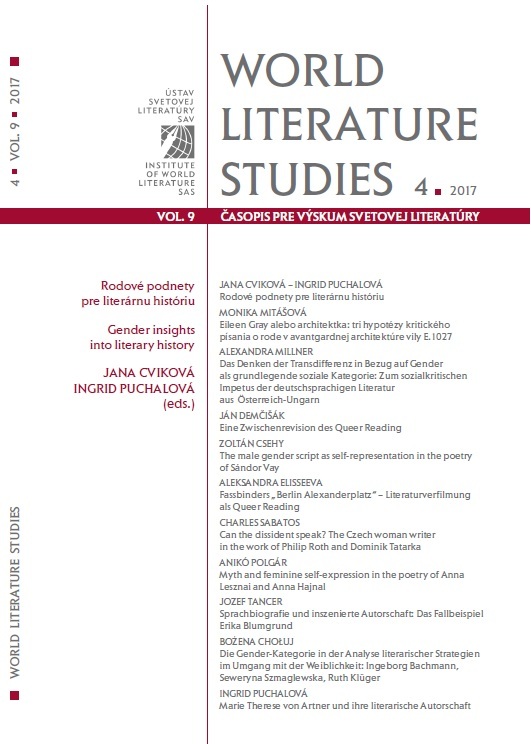Myth and feminine self-expression in the poetry of Anna Lesznai and Anna Hajnal
Myth and feminine self-expression in the poetry of Anna Lesznai and Anna Hajnal
Author(s): Anikó PolgárSubject(s): Language and Literature Studies, Gender Studies, Hungarian Literature
Published by: Ústav svetovej literatúry, Slovenská akadémia vied
Keywords: Women’s literature; Hungarian literature; Mythology; Feminine self-expression;
Summary/Abstract: The author in this paper analyses the poetry of two Hungarian poetesses, Anna Lesznai and Anna Hajnal, from the perspective of myth as a means of feminine self-expression. Anna Lesznai (1885–1966) belonged to the first, while Anna Hajnal (1907–1977) belonged to the third generation of the journal Nyugat (1908–1941). The theoretical background relates to women’s studies, while, starting from myth as an energy reaching back to women’s own identity and lineage, also relies on the results of the French feminist school. In the works of Anna Lesznai and Anna Hajnal, the uncovering of the mythical layers of poetry is intertwined with the modes of expression of female identity. Lesznai’s typical alter ego, Melusine, who is not accepted back by nature, breaks from her partner as well as her children. Anna Hajnal melds together the Greek and Jewish traditions, making Greek deities a part of her own private mythology.
Journal: World Literature Studies
- Issue Year: 9/2017
- Issue No: 4
- Page Range: 89-102
- Page Count: 14
- Language: English

